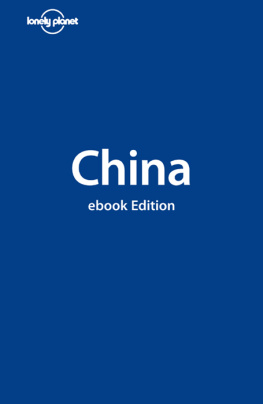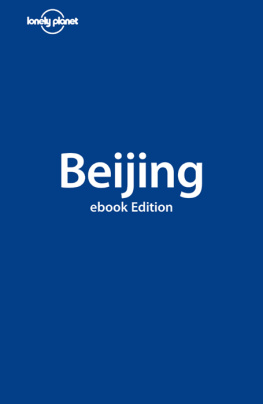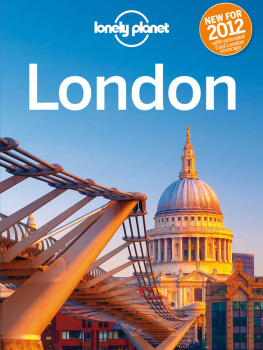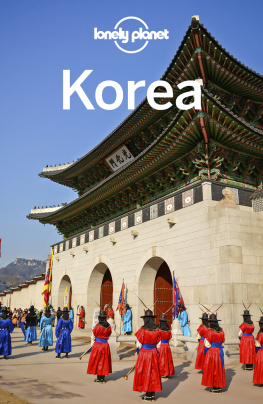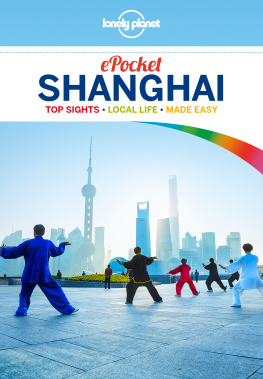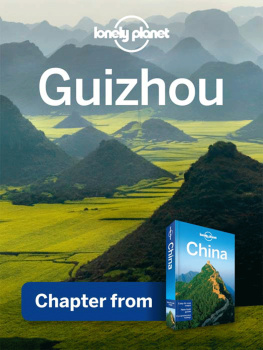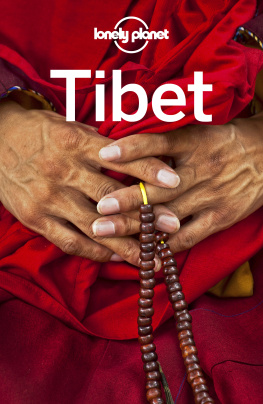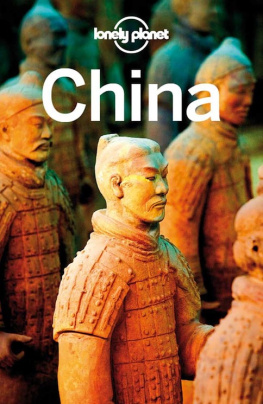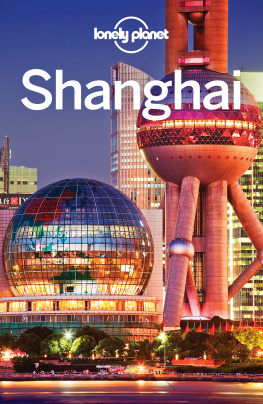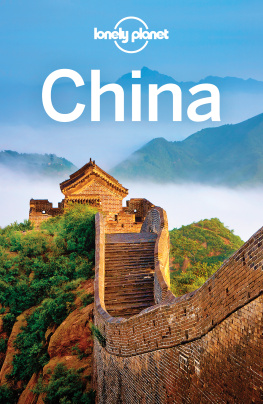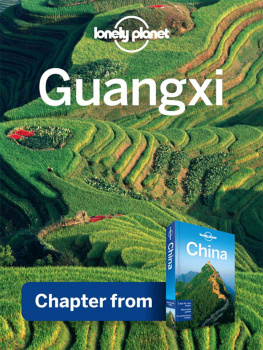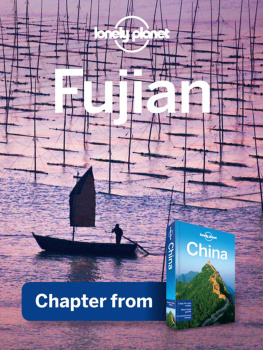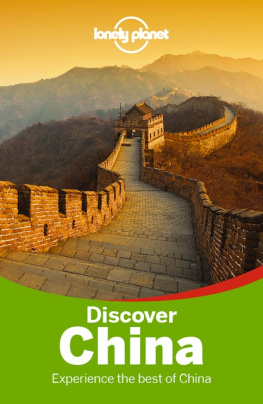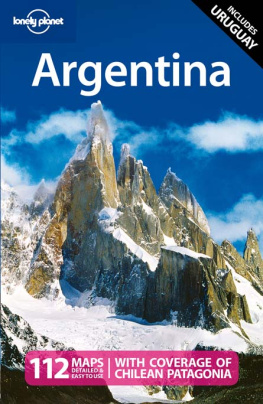Destination China
Cathay, the Middle Kingdom, the Celestial Empire, a superpower-in-waiting, a nation of 1.3 billion souls: China is the nation on everyones lips. Descriptions of China taking centre stage and assuming its mantle as the powerhouse of the East litter the global media, and the nation hit the headlines again when it grabbed the largest number of gold medals at the 2008 Olympic Games.
Indeed, China has made the news again and again in recent years. Pressured into honouring its commitments to unfettered internet access during the Games, Bijng allowed the great firewall to partially come down in August 2008, with the Chinese-language BBC World Service website and other previously forbidden content becoming accessible for the first time. At the time of writing, it was still uncertain whether Bijngs 30,000-strong force of cybercensors were out of a job or just enjoying a long tea break.
The worst violence for almost 10 years flared in restive Xnjing when Han Chinese policemen were killed in various attacks in the immediate run-up to the Olympics. Similarly, Tibet was out of bounds to foreign travellers for several months in 2008 after the violent riots in Lhasa. Bijng immediately sought to accentuate its achievements in Tibet while simultaneously closing the doors, sending in troops and complaining bitterly of bias in the Western media.
On the other side of China, a rapprochement with Taiwan was becoming perceptible with the exit of Taiwanese president Chen Shuibian and the return of the Nationalist Party to power. Direct flights from Taipei to Bijng and Shnghi were the first fruits of the thawing in relations.
FAST FACTS
Population: 1.3 billion
GDP per capita: $5870
Adult literacy: 91%
Number of mobile phones: 500 million
Major exports: textiles, clothing, footwear, toys and machinery
Religions: Buddhism, Taoism, Islam, Christianity
Number of Chinese characters: more than 56,000
Most strokes in a Chinese character: 57
China was badly rocked in May 2008 by the Schun earthquake, which killed an estimated 70,000 people and flattened entire towns. Bijng came in for considerable praise for its rapidly mobilised earthquake-relief efforts.
China has also made news with some notable statistics after all, when the nation runs out of superlatives, it simply generates a few more. The worlds fastest intercity train started running in 2008 between Bijng and Tinjn, but even that will be eclipsed in speed within a few years by the BijngShnghi high-speed rail link. China sits on the worlds largest foreign-exchange reserves, and it recently overtook the US as the worlds largest broadband market. Despite downsizing, the country also has the worlds largest standing army (which helps sponge up the worlds largest number of permanent bachelors, a by-product of the one-child policy). Eventually finished in 2008, the stratospheric Shanghai World Financial Centre was originally planned to be the worlds tallest building. It had to settle for third place behind the Burj Dubai and Taipei 101 but, rising from the Pudong New Area like a vast bottle opener, it remains a striking and monumental edifice.
But, although these achievements are impressive, any seasoned China traveller will tell you that theyre not particularly useful yardsticks for quantifying todays China. If you want your China experience to be all Christian Dior boutiques, Bentley showrooms and glistening skyscrapers, by all means make your choice and be suitably wowed. But this is only a small part of the picture.
A purely random trawl through China turns up something very different, but considerably more fascinating. Bijng and Shnghi are brimming with self-confidence, but if you wander a few miles from either city youll be reminded that China remains a largely agricultural nation, with its economy measured by per-capita wealth roughly in the same league as Namibia. As many as 500 million rural Chinese do not have access to clean drinking water, while Guzhu province with a population of almost 40 million has a per-capita GDP thats one-tenth of Shnghis.
Even short trips around the nation reveal China as a gigantic work in progress, caught somewhere between the 1950s and the early 21st century. The fruits of the economic boom are tangible and easy to assess, but on other development indicators take democracy, human rights, education, health care, the rule of law, intellectual-property rights and the environment, to name a few China is either making negligible progress or moving backwards.
Railways to Tibet, Birds Nest Stadiums and huge dams are all momentous achievements, but they give a disjointed and misleading impression of modern China. By encouraging Chinese immigration to Lhasa, the Tibet railway an admirable work of engineering purpose, for sure may have contributed to the anti-Han riots that killed more than 20 people in 2008. The Birds Nest Stadium a magnificent piece of architecture and the setting for Chinas greatest sporting triumphs was co-designed by Ai Weiwei, an artist who is an outspoken critic of Chinas government. The Three Gorges Dam (), for so long trumpeted as a triumph, is equally a symbol of Bijngs ability to impose itself on its population, regardless of dissenting voices. In a nutshell, there are two sides to each story in China.
There are two sides to each story in China
Chinas heritage has also been battered by the paroxysms of change. Linguists are wringing their hands at the inevitable demise of the once glorious Manchu language, now spoken natively by fewer than 20 old-timers huddled away in Chinas slow-moving northeast. But in Shnghi, heritage aficionados were elated when Waibaidu Bridge was whisked away for a clean-up, part of a massive spruce-up for the Bund.
On another nostalgic note, the Hnn village of Nnji Chinas last surviving bastion of collectivisation succumbed to bankruptcy in 2008 after accumulating debts of over one billion yun. It emerged that the Maoist collective had been less motivated by Marxist-Leninist goals than bankrolled by the Agricultural Bank of China. It would be hard to find a more fitting symbol for the contradictions of contemporary communist China.
At the heart of this momentous transformation the most dramatic in Chinas history are the Chinese people. Despite the rebellious paroxysms of the 20th century, they are deeply pragmatic. They are respectful and fearful of authority, so you wont see any antigovernment graffiti. You wont see speakers standing on soap boxes to vent their political views (unless they chime with government opinion). Instead, most Chinese keep their heads down and work hard for a living. This continues to create a country that is increasingly wealthy, for sure, but one that is widely considered intellectually stifled.
Getting Started
China a country catering to each and every budget could be the journey of your lifetime, and hitting the ground running with a bit of homework and preparation can save you much hassle. But first things first: take a long, hard look at the map of China and envisage what kind of experience you want your China trip to be. The worlds third-largest country, China has a daunting topographical diversity, so turn to p6 and for inspiration. In terms of restraints, the only part of China you should need to carefully plan is Tibet, as bureaucratic obstacles, travel restrictions and health issues will require consideration, although in 2008 parts of other provinces adjoining Tibet (eg west Schun, north Ynnn and Qnghi) were also periodically inaccessible.
WHEN TO GO
Travel to China is possible year-round, as long as youre prepared for what the season can throw at you. Spring (March to May) and autumn (September to early November) can be the best times to be on the road, as you avoid the blistering heat of summer (June to August) and stinging chill of winter (November to February/March). Autumn in Bijng, for example, is particularly pleasant, as are early spring and autumn in Hong Kong. Summer is the busiest tourist season, and getting around and finding accommodation during the peak summer crush can be draining.

